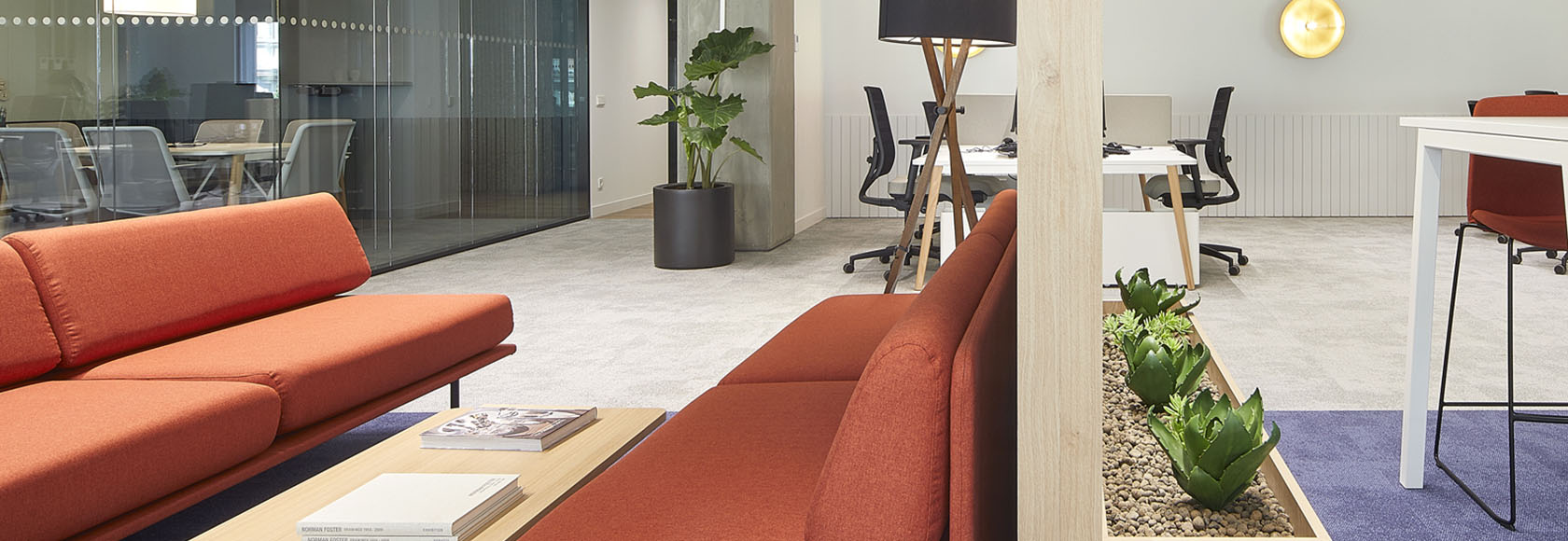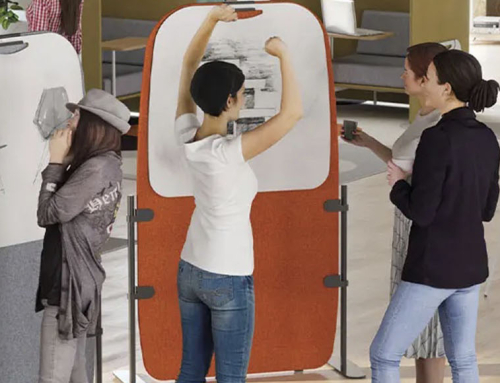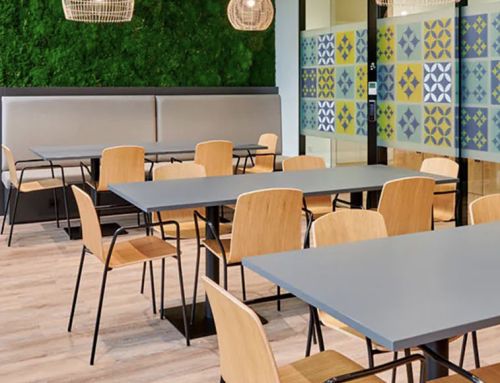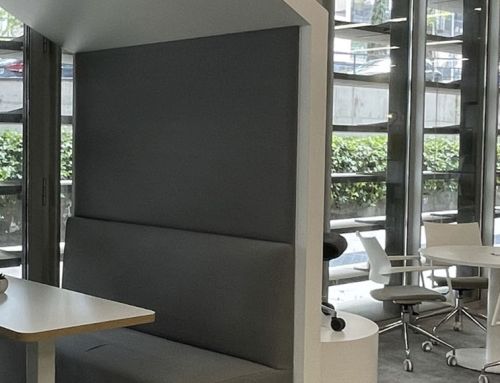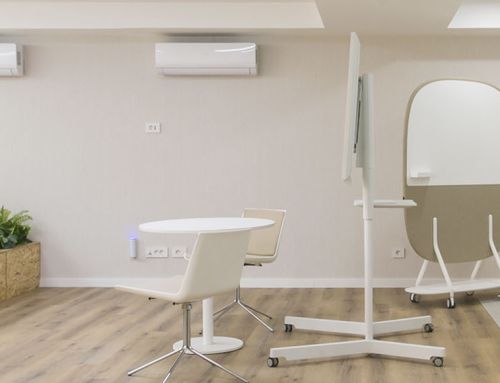Future of work, in this article we are going to talk about trends that will change the world of work. Technological innovations and emerging social trends are transforming the way companies work and interact with their employees. Artificial intelligence, ecology, family reconciliation and work flexibility are just some of the trends that are shaping the world of work. As we move into a new digital era, it is crucial that companies understand how these trends are impacting their employees and how they can adapt to them to improve their relationship with them and to create a sustainable, healthy and productive work environment.
The future of work, technological and social trends
Technology trends are revolutionizing the way we work. Artificial intelligence (AI) can help companies automate repetitive tasks and increase efficiency, which in turn can free employees to focus on more creative and strategic tasks.
However, AI is also changing the nature of work. As machines become more capable of performing complex tasks, some jobs may become obsolete. Automation is expected to have a significant impact on administrative and clerical jobs, as well as manual labor.

Despite this, many experts believe that AI can also create new job opportunities. Employees can work together with machines to perform complex tasks and make data-driven decisions. In addition, AI can help companies identify unique skills in employees and develop customized career plans.
Soft skills such as creativity, problem solving and communication are becoming increasingly important as machines take on more routine tasks. In addition, digital skills such as data analysis and knowledge of emerging technologies are increasingly necessary.
On the other hand, social trends are also transforming the world of work. Family reconciliation is becoming increasingly important for employees. Companies are responding to this trend by offering flexible schedules, remote work and part-time work options.
Family reconciliation can have a significant impact on productivity and employee satisfaction. It can also improve diversity and inclusion in the workplace.
Companies can also benefit from family reconciliation by enhancing their reputation as responsible employers committed to the well-being of their employees. This can help attract and retain valuable talent in a competitive job market.
A different kind of talent management, now focused on people, also leads to different organizations and work dynamics, based on greater autonomy for the individual to work how, when and where he or she wants.
The future of the work environment is increasingly employee-centric, with hybrid work models that allow staff to take control of where and when they work.
With more employee-centric work cultures, ensuring a positive employee experience is the foundation of an organization’s success. It must be an integrated process involving the workplace, technologies, brand, employees and leaders.
How ecology is influencing the world of work.
Companies have an important role to play in creating a sustainable and healthy work environment. This involves adopting responsible business practices, promoting a healthy lifestyle among employees and fostering sustainability in all operations.

One way companies are addressing it is through stricter environmental policies. Many companies are setting emission reduction and waste elimination targets, and are looking for ways to use more sustainable materials in their production.
Another way companies are addressing sustainability is through office design. Sustainable and healthy workspaces can improve productivity and employee satisfaction, while reducing energy costs and increasing efficiency. Companies are incorporating features such as natural lighting, indoor plants, ventilation systems to improve air quality, and quality furnishings made from environmentally friendly materials and processes.
The future of work: The megatrends of the future
Megatrends are global forces that are transforming the world of work. These trends include globalization, population aging, urbanization and automation. Globalization has created an increasingly diverse and mobile workforce. Companies must be prepared to work with employees from different cultures and countries, and offer remote work options for those who cannot work in a traditional office.
The aging population is also having an impact on the world of work. As people are living longer, they are working longer. Companies need to be aware of this and adapt their recruitment and retention policies to attract and retain senior workers.
Urbanization is leading to an increase in population density in cities, which in turn is changing the way we work. Companies must adapt their transportation and housing policies to meet the needs of employees living in urban areas. Finally, automation is a megatrend that is transforming the nature of work, as we have discussed.
Office design: how it will adapt to the “future of work”
Office design is evolving to adapt to the new work trends that describe the “future of work”. From enclosed cubicles and high walls to open, flexible spaces, the goal has been to create a work environment that promotes productivity, collaboration and employee well-being.
In the 1960s and 1970s, office design was characterized by enclosed cubicles and high walls to maximize privacy and minimize distractions. However, this resulted in an isolated and uncollaborative work environment. Over time, designers began to look for solutions that would promote greater interaction among employees and better utilization of space. This led to open spaces, which allowed for greater flexibility in the arrangement of furniture and encouraged collaboration and teamwork.
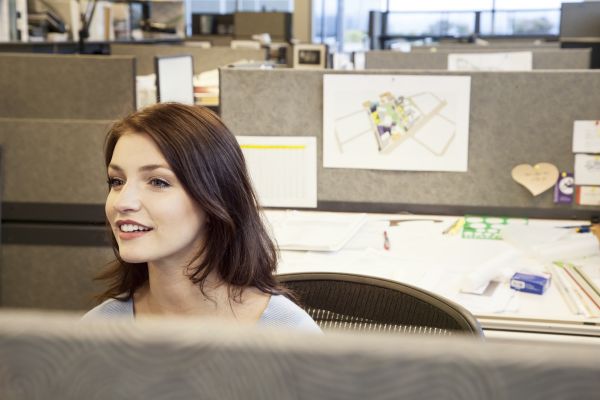
Currently, the trend is towards flexible spaces that combine individual work areas with common areas for informal meetings or teamwork.
Flexible office design offers a number of benefits for both employees and the company. First, flexible spaces allow for greater adaptability to changing business needs, which translates into greater efficiency and profitability. In addition, these spaces foster creativity and innovation by enabling teamwork and collaboration. On the other hand, employees enjoy a more pleasant and comfortable working environment, which can improve their well-being and productivity. Flexible spaces also promote greater work-life balance by offering options such as remote work or flexible schedules.
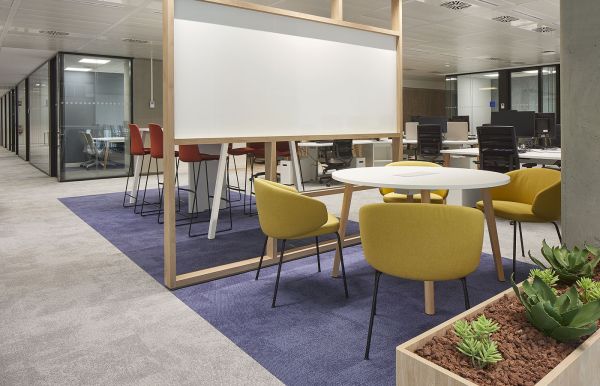
Companies are embracing more open and collaborative workspaces, as well as advanced technologies to improve efficiency and productivity. However, these spaces must coexist with other spaces for concentration, where employees can work individually without distractions. The combination of both types of spaces allows employees to alternate between moments of concentration and individual work, and others of collaboration and teamwork, which improves productivity and well-being in the work environment.
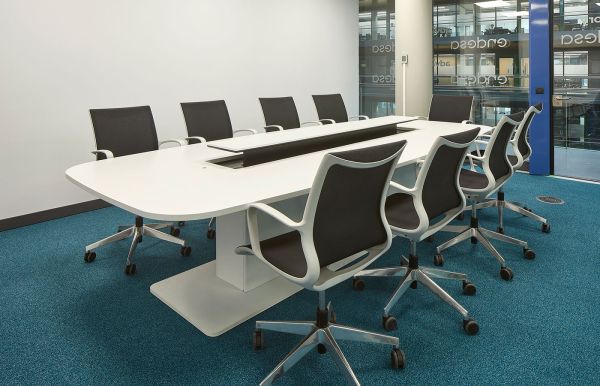
Advanced technologies are also transforming office design by changing the way we meet and share knowledge. In addition, technology can improve safety and accessibility in the workplace.
The challenge ahead for companies is ultimately to adapt to new labor trends in order to attract and retain valuable talent, enhance their reputation as responsible employers committed to the well-being of their employees, and create a more productive and healthy work environment.
